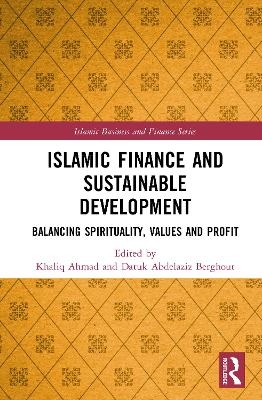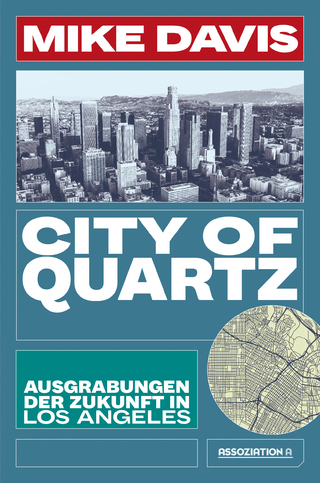
Islamic Finance and Sustainable Development
Routledge (Verlag)
978-1-032-80382-1 (ISBN)
- Lieferbar (Termin unbekannt)
- Versandkostenfrei innerhalb Deutschlands
- Auch auf Rechnung
- Verfügbarkeit in der Filiale vor Ort prüfen
- Artikel merken
This book uncovers a new dimension in the study of sustainability, offering balanced development from a spiritual and cultural values perspective. The authors of this edited volume investigate the role of religion in the debate concerning the Sustainable Development Goals (SDGs) and offer an Islamic perspective to environment, social and governance (ESG) issues.
Applying a multidimensional approach to socio-economic development, this book contends that Islam offers a unique perspective and framework for sustainable development that is holistic and rooted in spirituality, morality and ethics. For example, the book explains how Islam lays emphasis on human talents development (SDGs 3 and 4), which is a key element in accelerating socio-economic growth (SDG-8). It also offers a wide range of social financial tools such as Zakat and Waqf that can be used to address SDGs 1 (poverty), 2 (hunger), 5 (gender equality) and 10 (reducing inequality). Islamic finance offers a number of tools for long-term financing such as sukuk that can masterfully be used for building sustainable infrastructure (SDG-9). The study also reviews some Islamic principles from the Holy Qur'an that can positively SDGs.
Students, scholars and researchers in the fields of Islamic economics and finance, sustainable development and socio-economic and environmental issues will find the book a valuable resource.
Khaliq Ahmad is Professor at the International Institute of Islamic Thought and Civilization (ISTAC), International Islamic University Malaysia (IIUM), Kuala Lumpur, Malaysia. Datuk Abdelaziz Berghout is full Professor of Islamic studies and Civilization at International Islamic University Malaysia (IIUM), Kuala Lumpur, Malaysia.
Part 1. Values of Sustainability and Spirituality 1. Introduction 2. Maqasid for Re-Envisioning Islamic Higher Education for Sustainability and Socio-economic Development 3.Islamic View of Spirituality and Sustainability: Some Personal Reflections 4. Religiosity as a Core Factor of Intercultural Competence (IC) Part 2. Spirituality and Overall Ecosystems 5. Ethical Foundations of Monetary Transactions in Islamic Economics: Promoting Equity, Justice and Sustainable Development 6. The Islamization of Economics – An Analysis of the Linkage Between Islamic Economics, Sustainability and the Islamic Financial System 7. Pathways to Prosperity: Bridging Faith and Sustainability in Contemporary Consumption Behavior 8. Ethical and Sustainable Finance: Integrating Islamic Principles 9. Islamic Social Finance as a Catalyst for Socio-Economic Sustainability - The Role of FinTech 10. Humanising Governance and Management with Spirituality Part 3. Sustainable Finance Governance and Application - Case Studies 11. Financial Inclusion of the Deprived in India: Historical Perspectives 12. Sustainability Through Purposeful Leadership - The Maybank Case Study 13. The Viability of Integrating ESG As an Additional Screening in Shariah Stock Screening 14. Concluding Remarks
| Erscheinungsdatum | 06.02.2025 |
|---|---|
| Reihe/Serie | Islamic Business and Finance Series |
| Zusatzinfo | 16 Tables, black and white; 17 Line drawings, black and white; 2 Halftones, black and white; 19 Illustrations, black and white |
| Verlagsort | London |
| Sprache | englisch |
| Maße | 156 x 234 mm |
| Themenwelt | Sozialwissenschaften ► Soziologie ► Spezielle Soziologien |
| Wirtschaft ► Volkswirtschaftslehre ► Makroökonomie | |
| ISBN-10 | 1-032-80382-7 / 1032803827 |
| ISBN-13 | 978-1-032-80382-1 / 9781032803821 |
| Zustand | Neuware |
| Informationen gemäß Produktsicherheitsverordnung (GPSR) | |
| Haben Sie eine Frage zum Produkt? |
aus dem Bereich


